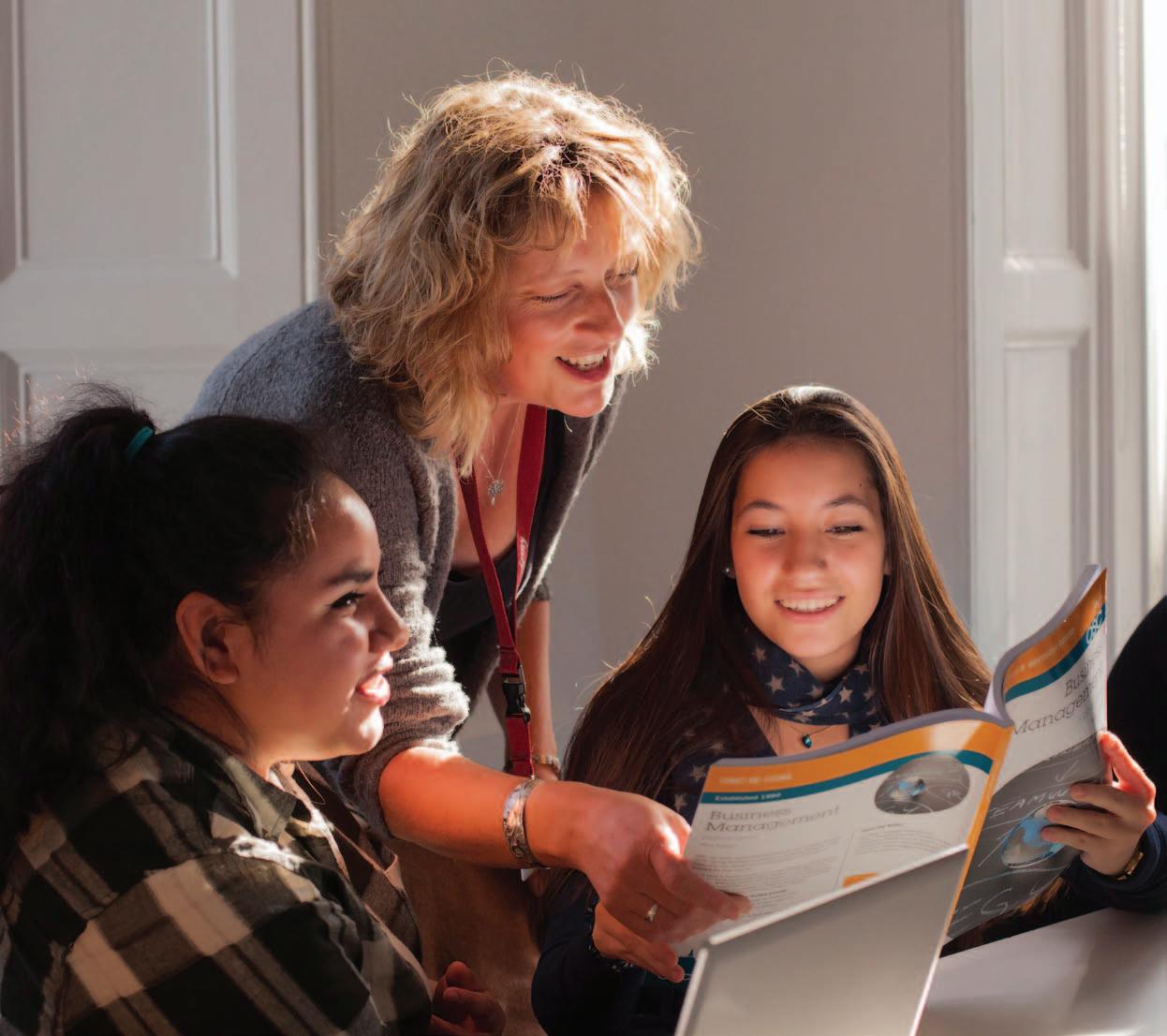
3 minute read
English for academic achievement, Sandra Comas
English for academic achievement
Sandra Comas on the importance of language skills
Oftentimes we provide great English instruction at our international schools, believing that communication among students and teachers is the highest priority. Is it true that a student who converses easily and well in acquired English is the student who is also best poised for advanced academic learning? It would seem so. Yet our experience shows that the ability to read and write, listen and speak, with the vocabulary and thinking of a specific area of study, is the ability that best prepares students for success at university. A student can be outstanding in mathematics and face language barriers that hinder her progress. Another student could be exceptional in certain types of scientific reasoning, but not have developed the specific knowledge of English that allows him to continue to develop his scientific capabilities.
International schools often focus on one language for teaching and learning. Even at the highest levels of academic study there can be “interferences” between languages that can impede learning of content. Schools face the challenge
of facilitating language acquisition for study of complex subjects. The type of English instruction that will guide nonnative students to their best education focuses on English for academic purposes. At earlier stages of language learning, it is important to develop the essential skills of communication with others. Such instruction is invaluable for helping students to organize their knowledge of putting sentences together in another language, find adequate words, and express ideas. Students can practice the conversations of daily life and develop a social, cultural, and intellectual understanding that is a significant resource.
Some universities have discovered, however, that as they become more international, with more English language learners who are non-native, their approaches to language acquisition need to be more focused on academic skills. How can one reason in chemistry with the tools of daily conversation? Are there language elements in the presentation of a mathematical problem set? Do students of literature also need a specific vocabulary and certain phrases in order to refer to concepts?
Many schools offer robust instruction in English communication. It is at least as important, I believe, to actively prepare students for engaging in English for academic purposes. This is a school-wide effort that focuses on professional development for teachers to help them create exercises, introduce vocabularies of words and ideas for each area of study, to speak clearly, assess frequently and in a variety of ways, and to give extra opportunities for writing. A student who can write in the language of higher-level English can more readily speak it and understand this English when heard or read. Yale University, the University of Pennsylvania, and the University of Virginia are all centers of higher learning in the U.S. that have been developing special instruction in English for academic purposes. International schools at the high school level can do the same, but differently, with students acquiring the language at a younger age and stage of intellectual development.
At EF Academy we have developed specialized vocabulary lists that are available online. Students in any course can click on a word or concept and find its definition, discovering and practicing the English that is specifically relevant to satisfactory understanding of more abstract or more advanced thinking. Our teachers and department heads have also explored the fundamentals of English, its patterns in grammar and usage, its nuances and multiple meanings in words, in order to offer this learning in courses created specifically for second-language learners. These courses are offered in all four years of our high school and, as part of these courses, students also study for the verbal sections of college entrance exams. These exams test how well a student is prepared to do higher-level work in English. Therefore, it is helpful to stay focused on the skills that universities require, and to incorporate this study into a broader plan.
Students communicate with each other, with teachers, and with other members of their communities. They also communicate within areas of study, with others from around the world and across time. At our school, with many cultures and countries represented, it is this English study, both broad and specific, that allows students to develop the language skills that not only open doors but also guide them to a rich wonderland of academic exchange.











